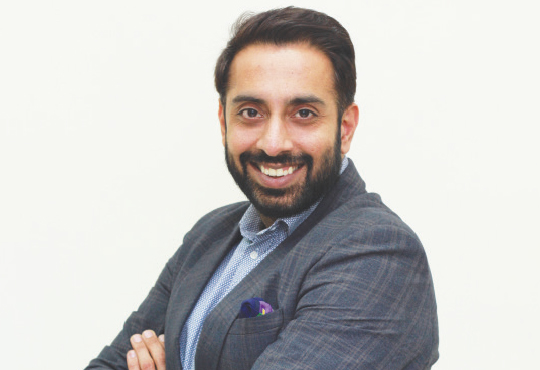Technology Easing the Study Abroad Sector in India

Gurinder Bhatti, Founder MakeMeStudyAbroad.com
In the past, electing to pursue an education abroad was a leap of faith. Information about universities, courses, colleges, and the process of education in exotic foreign lands was hard to access or understand. Students would eagerly call complete strangers who might be studying in the same city to ask for information. Where can I get my clothes laundered? Where can I buy books? Where can I make friends? Today, technology has completely removed this uncertainty from the studying-abroad equation. Information about a university, their programs, curriculum, teaching methods, and recruitment outcomes are accessible through the internet.
While the internet and social media have made the process more convenient, that is only the tip of the iceberg in terms of the benefits that technology can bring to the prospect of studying abroad. Students and foreign educational institutions are both increasingly adopting technology to increase their efficiency. Technology can help bring the right student to the right institution and vice versa, through the application of artificial intelligence and machine learning algorithms.
Technology can help bring the right student to the right institution and vice versa, through the application of artificial intelligence and machine learning algorithms.
Even with all the information available online, students and universities don't find it easy to make their selections. It involves analyzing a large number of variables and picking the best possible outcome based on various probabilities. Should a student choose an institution with a course more suited to their interests, even if the starting salary for graduates from that course is much lower? How can one make this trade-off accurately? AI-driven machine learning algorithms can crunch historical data and statistics from the course and an individual student's profile, and use the data to predict whether the course is a good fit for the student. Across multiple programs and students, these iteratively learning systems can add accuracy to the selection mechanism for both students and universities.
Today, platforms are already leveraging these technologies to optimize the studying abroad process for universities and students. Algorithm-driven checking of student information to determine eligibility can help students make more data-driven choices about their future education. Additionally, they can provide 360-degree solutions to help students optimize their approach to the admission and visa process. It can provide reliable deadlines and reminders to help students keep track of the various steps and tasks required to complete the progress. It can also help remind students about their online application and the progress made in that regard.
Essentially, these AI-driven platforms can act as an assistant or resource to help you through the process � the role hitherto played by the agent. However, instead of relying on their experience, the process here is entirely data-driven. These artificial systems can provide greater accuracy, better trend analysis, and therefore better outcomes.
Gurinder Bhatti, Founder
Gurinder Bhatti born in Amritsar, Punjab, Founder of MMSA and is currently acting CMD in various other companies. He has more than 14 years of experience as an immigration consultant for countries such as Canada, Australia, New Zealand, Germany, The U.K, The U.S.A, etc. He has been working to make processes simpler and productive for the company.
While the internet and social media have made the process more convenient, that is only the tip of the iceberg in terms of the benefits that technology can bring to the prospect of studying abroad. Students and foreign educational institutions are both increasingly adopting technology to increase their efficiency. Technology can help bring the right student to the right institution and vice versa, through the application of artificial intelligence and machine learning algorithms.
Technology can help bring the right student to the right institution and vice versa, through the application of artificial intelligence and machine learning algorithms.
Even with all the information available online, students and universities don't find it easy to make their selections. It involves analyzing a large number of variables and picking the best possible outcome based on various probabilities. Should a student choose an institution with a course more suited to their interests, even if the starting salary for graduates from that course is much lower? How can one make this trade-off accurately? AI-driven machine learning algorithms can crunch historical data and statistics from the course and an individual student's profile, and use the data to predict whether the course is a good fit for the student. Across multiple programs and students, these iteratively learning systems can add accuracy to the selection mechanism for both students and universities.
Today, platforms are already leveraging these technologies to optimize the studying abroad process for universities and students. Algorithm-driven checking of student information to determine eligibility can help students make more data-driven choices about their future education. Additionally, they can provide 360-degree solutions to help students optimize their approach to the admission and visa process. It can provide reliable deadlines and reminders to help students keep track of the various steps and tasks required to complete the progress. It can also help remind students about their online application and the progress made in that regard.
Essentially, these AI-driven platforms can act as an assistant or resource to help you through the process � the role hitherto played by the agent. However, instead of relying on their experience, the process here is entirely data-driven. These artificial systems can provide greater accuracy, better trend analysis, and therefore better outcomes.
Gurinder Bhatti, Founder
Gurinder Bhatti born in Amritsar, Punjab, Founder of MMSA and is currently acting CMD in various other companies. He has more than 14 years of experience as an immigration consultant for countries such as Canada, Australia, New Zealand, Germany, The U.K, The U.S.A, etc. He has been working to make processes simpler and productive for the company.

